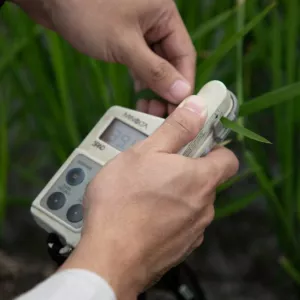In South Asia, less N surplus and sustainable agronomy are keys to combatting climate change
by Veronica Mae Escarez A Nature report revealed that improving nitrogen use efficiency by lessening redundant nitrogen use and adopting sustainable agronomic practices such as proper water management and cropping calendars can help fight nitrogen pollution and climate change in South Asia. As South Asia rises as the center of global rice production, it has become a hotspot for nitrogen

In South Asia, less N surplus and sustainable agronomy are keys to combatting climate change
by Veronica Mae Escarez
A Nature report revealed that improving nitrogen use efficiency by lessening redundant nitrogen use and adopting sustainable agronomic practices such as proper water management and cropping calendars can help fight nitrogen pollution and climate change in South Asia.
As South Asia rises as the center of global rice production, it has become a hotspot for nitrogen (N) surplus because of its inefficient use. In rice farming, nitrogen is mainly present in the fertilizer and the soil. It is essential to plant health, influencing plant growth and crop yield. Overusing N fertilizers has been identified as one of the main drivers of climate change, air pollution, and biodiversity loss worldwide. Because of this, South Asian governments have been set back by about USD16 billion in 2023-2024 alone. However, merely reducing nitrogen fertilizer utilization without comprehensive follow-up plans may affect existing ecosystems reliant on higher nitrogen use.
Driving down N residues
New research led by Sam Coggins, a PhD student at the Australian National University, in collaboration with scientists and researchers from CGIAR, Indian Council of Agricultural Research (ICAR), and Cornell University, found that efficient nitrogen use and the adoption of sustainable agronomic practices can improve rice production and incomes and combat the impacts of climate change in South Asia.
“We provide a novel AI-driven spatial framework for targeting these that draws on the innovative Landscape Crop Assessment Survey (LCAS), spanning over 31,000 farmer fields across South Asia. “, shared IRRI Senior Scientist Anton Urfels. The areas included fields across Nepal, Bangladesh, and India.

